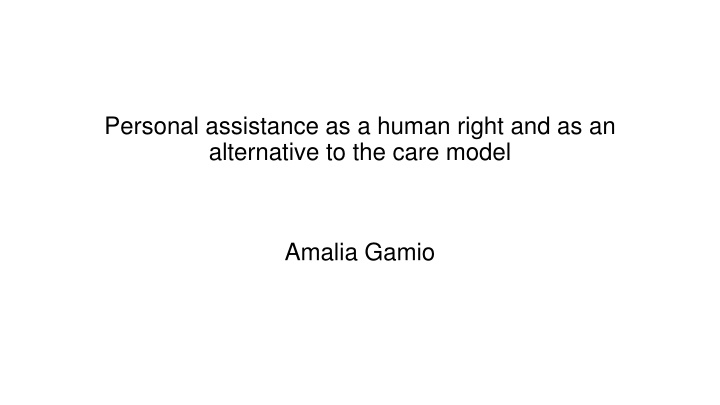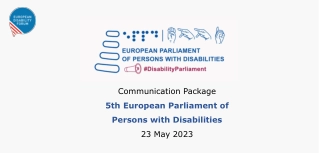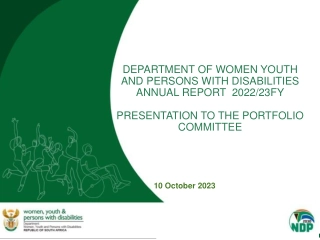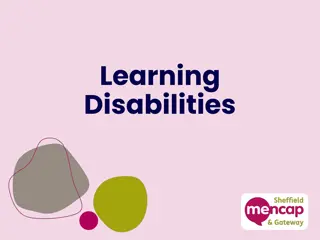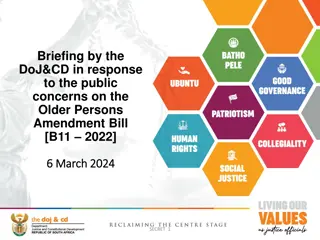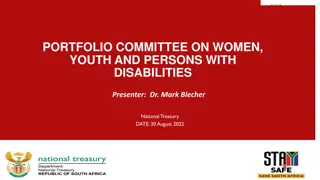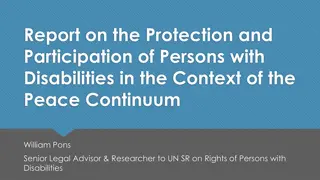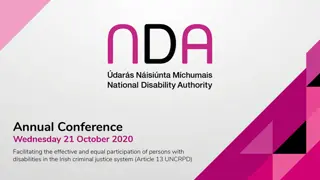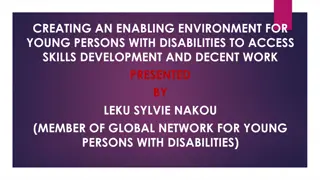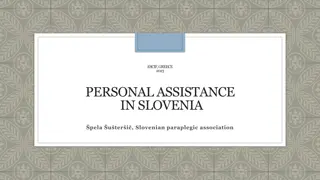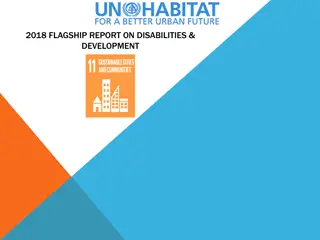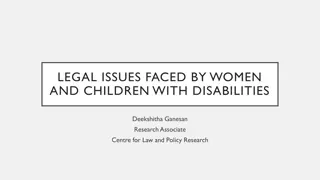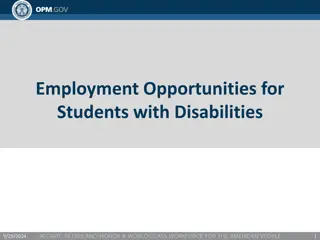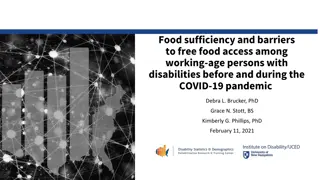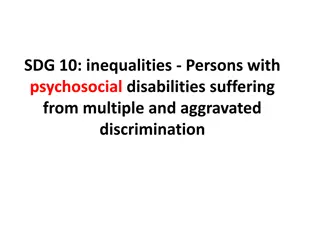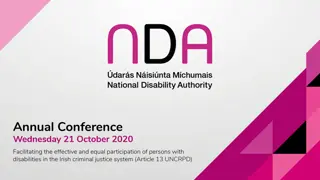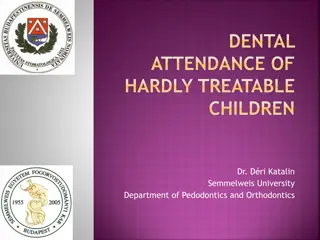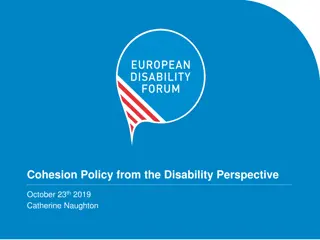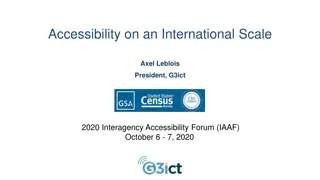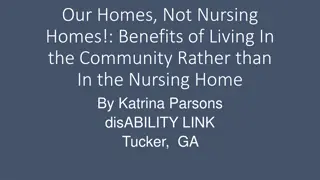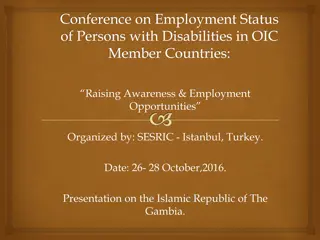Fulfilling the Right to Personal Assistance for Persons with Disabilities under CRPD
Personal assistance is a crucial aspect of promoting human rights for individuals with disabilities, as outlined in the CRPD. It plays a key role in enabling autonomy, independence, and inclusion in society. The CRPD emphasizes the importance of providing access to various forms of support, including personal assistance, to ensure the full enjoyment of rights for persons with disabilities. General Comment No. 5 and guidelines on deinstitutionalization and emergencies further highlight the significance of personal assistance as a means to empower individuals with disabilities as rights holders.
Download Presentation

Please find below an Image/Link to download the presentation.
The content on the website is provided AS IS for your information and personal use only. It may not be sold, licensed, or shared on other websites without obtaining consent from the author.If you encounter any issues during the download, it is possible that the publisher has removed the file from their server.
You are allowed to download the files provided on this website for personal or commercial use, subject to the condition that they are used lawfully. All files are the property of their respective owners.
The content on the website is provided AS IS for your information and personal use only. It may not be sold, licensed, or shared on other websites without obtaining consent from the author.
E N D
Presentation Transcript
Personal assistance as a human right and as an alternative to the care model Amalia Gamio
What is the place of personal assistance in the CRPD? Propose To promote, protect and ensure the full and equal enjoyment of all human freedoms by all persons with disabilities, and to promote respect for their inherent dignity rights and fundamental
Even in the Preambule (n) autonomy freedom to make one's own decisions, for persons with disabilities Recognizing the independence, importance of individual and including the
Recognition before the law (art. 12); access to justice (art. 13); freedom violence and abuse (art. 16); live independently and be included in the community (art. 19); personal mobility (art. 20); freedom of expression and opinion and access to information (art. 21); respect for the home education (art. 24); habilitation and rehabilitation (art. 26); labour and employment (art. 27); an adequate standard of living and social protection (art. 28); and participation in cultural life, leisure, and sport (art. 30). from exploitation, and family (art. 23);
Artcle 4 General Obligations h) Provide information that is accessible to persons with disabilities on mobility aids, technical devices and assistive technologies, including new technologies, as well as other forms of assistance and support services and facilities;
Article 19 Live independently and to be included in the community (b) Persons with disabilities have access to a range of home, residential and other community support services, including such personal assistance as is necessary to facilitate their existence and inclusion in the community and to prevent their isolation or separation from the community;
How is it developed in General Comment n5 and the Guidelines on deinstitutionalisation, emergencies? Emphasizes that persons with disabilities are subjects of rights and holders of rights. The general principles of the Convention (art. 3), in particular respect for the inherent dignity, autonomy and independence of the person (art. 3(a)) and full and effective participation and inclusion in society (art. 3(c)), are the basis for the right to live independently and to be included in the community, through the creation of forms of support that enhance the full exercise of their rights, such as personal assistance, and call for community facilities to conform to the principles of universal design. including in
II. (d) Personal assistance. to self-directed or "user-directed" human support that is made available to a person with a disability as a tool to enable independent living; the forms of personal assistance may vary, -Provided on an individualized basis -It should be controlled by and allocated to the person with a disability -It is based on an assessment of the individual needs and life circumstances of each person -The service is controlled by the person with a disability -plan it and decide by whom, how, when, where and in what manner it is provided, as well as instruct and direct the persons providing it; should not be "shared" Normative content of article 19
Individualized support services should be considered a right Persons with disabilities have the right to choose services and their providers according to their individual needs and personal preferences, They are not limited to services provided in the home: extend to employment, education and political and cultural participation, They should all be designed to facilitate life in the community and avoid isolation and separation from others, Relates personal assistance to other articles of the CRPD
Guidelines on DI Including Emergeny Situations They emphasize and further develop the concepts of personal assistance contained in Article 19 and General Comment No. 5 Like individualized support; paid for by themselves etc. It highlights: That all persons with disabilities should have access to personal assistance, regardless of requirements for support in exercising legal capacity. Support services for living independently should be available, accessible, acceptable, affordable and adaptable. Support caregivers communication, support for mobility, provision of assistive technology, support in securing housing and household help, and other community-based services services for include children personal family assistance, settings, peer support, support, supportive support in crisis for
And extends on: Affordable housing Decent work Transportation Long term economic and social support
How can personal assistance lead to a paradigm swift from the care model?
